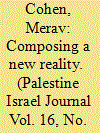| Srl | Item |
| 1 |
ID:
095691


|
|
|
| 2 |
ID:
102771


|
|
|
|
|
| Publication |
2011.
|
| Summary/Abstract |
This paper compares the three recent episodes of boom and bust cycles in asset prices: Japan in the late 1980s to the 1990s; the USA since the mid-1990s; and China during the past decade. Although we have not yet seen a collapse of Chinese property prices, their increases so far are comparable to those in the other two episodes and a careful comparative study is warranted. The present paper first examines the behavior of asset prices, of property prices in particular, in the three cases, and highlights some similarities. The paper emphasizes the role played by extremely easy monetary policy in generating bubble-like asset price behavior in the three cases. The reason for easy monetary policies is investigated. In the US case, the monetary authority was concerned about the risk of deflation in the early to mid-2000s. The experiences of Japan and China are quite similar in that the monetary authorities of both countries were seriously concerned about the possible deflationary effects of exchange rate appreciation on the economy. The implications of such a finding for the future of Chinese macroeconomic policy are discussed.
|
|
|
|
|
|
|
|
|
|
|
|
|
|
|
|
| 3 |
ID:
149974


|
|
|
|
|
| Summary/Abstract |
This paper suggests that there was a negative bubble in oil prices in 2014/15, which decreased them beyond the level justified by economic fundamentals. This proposition is corroborated by two sets of bubble detection strategies: the first set consists of tests for financial bubbles, while the second set consists of the log-periodic power law (LPPL) model for negative financial bubbles. Despite the methodological differences between these detection methods, they provided the same outcome: the oil price experienced a statistically significant negative financial bubble in the last months of 2014 and at the beginning of 2015. These results also hold after several robustness checks which consider the effect of conditional heteroskedasticity, model set-ups with additional restrictions, longer data samples, tests with lower frequency data and with an alternative proxy variable to measure the fundamental value of oil.
|
|
|
|
|
|
|
|
|
|
|
|
|
|
|
|